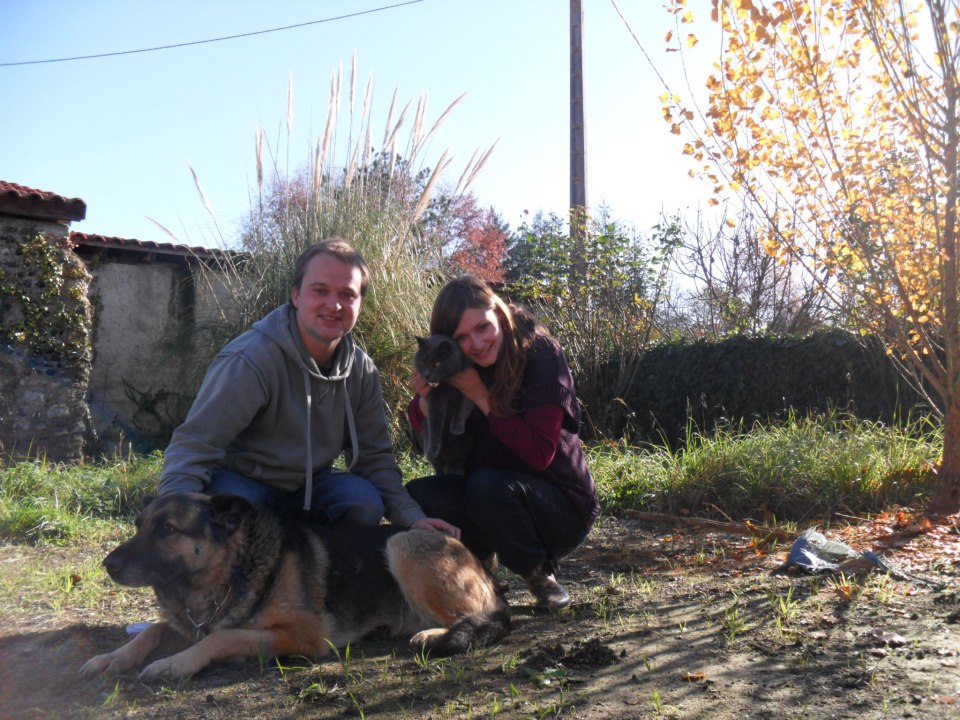House Sitting 101: Or How to Travel the World for Free
Few years ago my girlfriend and I spent nine months living in France, rent-free. We were house sitters which means we looked after other people’s homes and pets while they were away on holidays themselves. We took on four different house sits ranging from two weeks to five months, drank plenty of wine and consumed our weight in baguettes and cheese on a weekly basis. It was a wonderful experience and it was incredibly cheap. Without the cost of rent, our only real outgoings were food and spending money. It meant we were able to live in France, a country we’d both wanted to live in for several years without having to go through the rigmarole of finding a place to rent and finding French companies that had job openings for two people with, it’s fair to say, very little French. In return for staying there rent-free we had a few chores to carry out. The amount of work you’re asked to do varies from house sit to house sit. This one was quite a bit of work. In addition to looking after the pets, we also had to mow the several acre lawn and even try to sell the homeowners’ car. In this House Sitting guide aka how to travel the world for free , I will try explain how House Sitting works and how you can find house sitting jobs around the world.
What is House Sitting?
House sitting means looking after someone else’s home while they’re away. The reasons people get a sitter vary, but in most cases it’s because they have pets that need looking after and aren’t comfortable putting them into boarding kennels or a cattery. Often there are several pets to look after which would mean the boarding kennel costs doubles and very often people have pets that most boarding kennels won’t look after (we’ve looked after alpacas and turtles for example).
Other reasons for getting a sitter include: having someone to collect the mail, having someone there to act as a deterrent to burglars and having someone there to make sure things don’t go wrong (e.g. the pipes freezing during winter).
All in all, it often makes much more sense to get a house sitter than to go with any of the alternatives.
Why House Sit

Anyone who’s ever travelled for more than a few weeks will know just how much the cost of accommodation adds up. In places like Western Europe, Australia and North America this can make travel and especially long-term travel seem very unaffordable. But house sitting is more than just free accommodation – as amazing as that is – it’s a unique travel experience that gets you living like a local in a proper house and usually with pets as well.
Towards the end of our house sit last year we were invited to attend the local repas de chasse; a six course meal of venison, wild boar, cheese and other delights thrown by the local hunting society.
How to Find House Sitting Assignments
When we first started house sitting, we did everything to market ourselves to try and get more house sits; we built our own website, advertised, contacted expats living abroad etc. It was a lot of effort for very little return. These days we just tend to maintain memberships on house sitting websites like TrustedHousesitters.com ( Use the code: KASH25 to get 25% off when signing up ) who currently have around 500+ housesits to apply for. Of all the different house sitting sites, Trusted Housesitters tend to be the best reviewed.
We’ve also built up some good relationships with people we’ve house sat for before and so are frequently invited back for repeat house sits.
Applying for House Sits
House sits can come and go in as little as a few hours, especially if they’re in luxurious locations (e.g. Saint Lucia) or otherwise very expensive cities like New York, Sydney or London. You can keep track of them via Twitter or email, but as soon as they go live it’s really a fastest first situation. Most house sitting sites have an option to get email alerts as soon as the house sit is posted on the site. Make sure you sign up for ‘real-time alerts’ as opposed to the daily e-mail alerts. Real-time alerts ensure you get an email as and when the house sit goes live, whereas daily email alerts are a roundup of house sits sent out once per day. The latter means you might be hearing about a house sit 23 hours after it has been posted and by that point it might already have gone. (Of course there are plenty of house sits that don’t get filled as quickly, but it’s just worth bearing this in mind about the ‘dream’ house sits.)
Do
- Have your profile filled out in advance: This means photos (as many as possible, especially ones of you with pets), a good description of yourself and as many references as possible. If you haven’t been house sitting before getting references may seem like a catch-22 situation but know that references from previous employers and landlords or character references can all add weight to your application.
- Be concise: Brevity is the soul of wit after all. Get your first email into as few words as possible, mentioning first of all why you’re the right person for this particular house sit. Focus more on what you can offer the homeowner, not why you would love a free holiday. A homeowner may have several emails to get through and they’ll be trying to make a shortlist of the best people as quickly as possible. Make yours stand out and get yourself into that shortlist.
Don’t
- Oversell yourself: Although it’s tempting to sell yourself as a handyman come gardener, don’t put this in if it isn’t true, and especially don’t add it in if the house sitting assignment doesn’t call for these skills. Nothing is more worrying to a homeowner than the thought of coming home to a new, unasked-for, set of shelves in the kitchen and a water feature in the garden.
- Give up: Sometimes you just need to get that one house sit (and reference) under your belt to begin getting accepted for others. When we first started house sitting, we began by house sitting in Edinburgh (where we were living) to get experience before applying for the big ones abroad. Homeowners, we found, were a lot more willing to give us a chance if they could meet us first.
Good luck!
House sitting: FAQ
What is house sitting?
House sitting involves caring for someone’s home and pets while they’re away. This can last from a few days to several months, and in return, house sitters usually stay rent-free.
How does house sitting work?
Typically, house sitting is an exchange. The sitter looks after the home, pets, plants, and any other responsibilities, and in return, they get free accommodation.
Who can be a house sitter?
Anyone interested in taking care of homes and pets can become a house sitter, as long as they take the role seriously. This can include solo travelers, couples, families, or even individuals with their own pets.
Do house sitters live in the property?
Yes, house sitters generally live in the home they are taking care of during the homeowner’s absence.
What are the benefits of house sitting?
House sitting offers free accommodation, the chance to experience living in a home rather than a hotel, and the opportunity to explore new places. It also provides peace of mind to homeowners, knowing their home and pets are well cared for.
What should I ask before accepting a house sitting position?
It’s crucial to ask about the details of the homeowner’s trip, house logistics, pet care responsibilities, and emergency contacts. Clear communication helps ensure a positive experience for both parties.





Terrific article and advice. My wife and I run an online business which we can run from anywhere in the UK with decent wifi and heard about house sitting and pet sitting in February. After registering with a couple of the major house sitting sites, things really took off and, since March, we have looked after a Pointer puppy, hens, ducks and geese in Cornwall, a Bichon/Shih Tzu mix in Cheltenham, a cat in Surrey, a cat in Lancashire, a Wheaten Terrier and fish in Somerset, 2 dogs and 5 hens in the Chiltern Hills and a Border Collie and rabbit in Hampshire. We’re off to look after the Pointer puppy again for a month in September and are booked right through to mid-July next year.
As James says, getting good references is crucial and so is taking care with your profile, emphasising your trustworthiness, maturity, reliability and sense of responsibility. Recently, we went a step further and created our own house sitting and pet sitting website:http://www.housesittingandpetsitting.com/ which has enabled us to put in a lot more detail than we could in our profiles and it seems to have helped. Thanks for the great article James. I wish we’d discovered house and pet sitting years ago. Good luck to anyone who decides to try it out. We’d highly recommend it!
Great idea and congratulations on the new site. I’ll have a look and share it with my partner who is a blogger/ vet.
Thanks and best wishes
Kash
Thanks, Kash. That’s very kind of you.
Best wishes.
Brian & Lynn
My husband and I also house sit full time. We fell into it by accident, that was 8 months ago and we are fully booked for another two months. It’s a great way to see the world for free. So far we have only sat in Panama and Nicaragua but are hoping to head to Europe next spring.
Is indeed a great way to see the world…Panama and Nicaragua sounds amazing. Yet to visit but hopefully soon…
In the not too distant past people were paid to house sit. Let’s not forget that pet care was also paid for by pet owners when away from home.
Sounds like people are losing their jobs and livelihoods and others are paying to do what was once someones ‘job’ regardless of what apparent travel benefits you may decide you have. Also, you have to pay to be a member of ‘trustedhousesitandpetsitting’.
A friend who used this site found it so difficult to secure a placement she left the site after just over a week of endless applications to numerous ads’ around Europe, which dozens of others had applied for. Did you actually manage to have nine months of non-stop placements? I don’t think so.